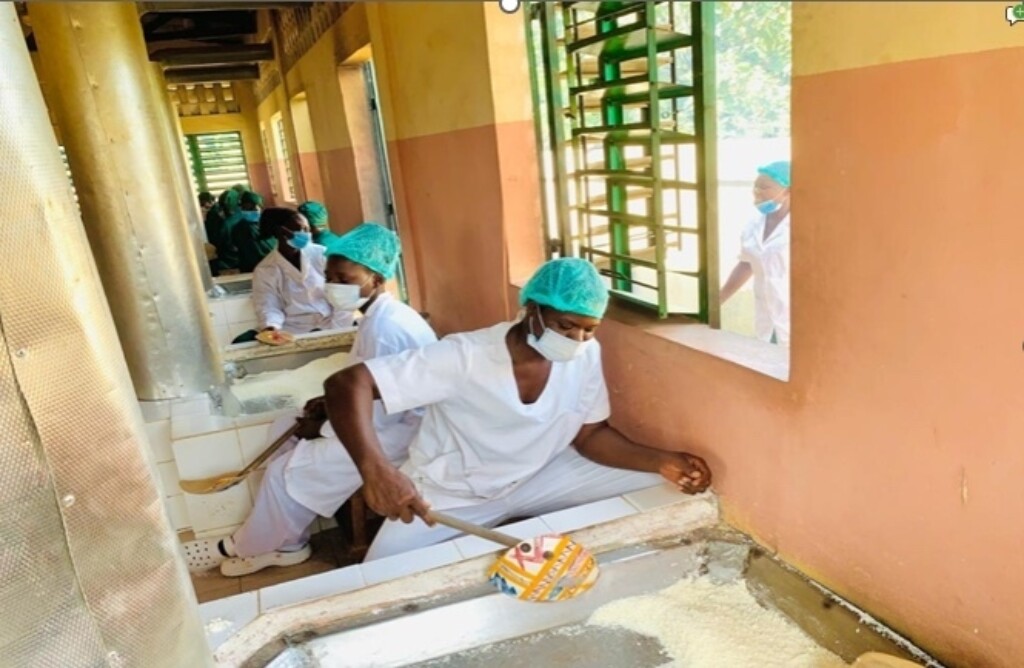Success story
La Savaloise: driving economic change in the Collines region
In Savalou, in the heart of the Collines department in Benin, women are determinedly transforming the local economy. Active in key sectors as the agri-food processing, commerce, catering and the artisanal use of building materials, they are shaping resilient value chains that are essential to food security and household stability.
But despite their central role, they face many challenges: limited access to finance, inadequate equipment, poorly structured markets. For their impact to be fully realised, it is essential to recognise, support and strengthen their initiatives.
Adding value to local produce through processing
In the Collines, agriculture remains the dominant activity. But simply growing crops is no longer enough to provide a stable income. It is through the processing of produce, the vast majority of which is done by women, that new economic opportunities are emerging.
Cassava is at the heart of this dynamic. Processed into gari, tapioca or starch, it is a popular staple food in the region. Every stage from processing to marketing is carried out by women's groups, despite a crying lack of modern infrastructure and access to drinking water.

Local rice, while plentiful, still competes with imported products. Parboiling, a technique mastered by women, improves its quality, taste and preservation. Support in terms of equipment and organisation would enable this sector to regain its competitiveness.
Working differently: informal activities and precarious conditions
In the shadow of these agricultural sectors, other women are active in occupations that are often invisible. Stone crushing, for example, is a source of income for many families. Painful and risky, this traditional activity suffers from a total lack of mechanisation and exposes women workers to health hazards. Adapted tools and better organisation could change their living conditions.
Keeping markets alive and passing on culture
The women traders of Savalou ensure the daily supply of basic products as bread or condiments despite their limited resources. These activities, which are essential to the local economy, would benefit from support from appropriate microfinancing mechanisms.
At the same time, the catering industry is developing and helping to promote Benin's culinary heritage. Traditional dishes are cooked and sold by women who combine cultural transmission with financial independence. Access to appropriate infrastructure and training in management and hygiene would enhance the professionalisation of this sector.
Investing in women means investing in the future
The women of Savalou are not just economic players: they are the real drivers of local change. Their daily commitment demonstrates their ability to innovate, adapt and create value despite sometimes extreme conditions.
To strengthen their impact, we need to mobilise a number of levers:
- Facilitating their access to finance and modern equipment;
- Offering appropriate training in management, processing and hygiene;
- Structuring value chains for better market integration.
Our partners
Thank you to our financial and implementation partners, without whom this project would not be possible. CECI's volunteer cooperation program is carried out in partnership with the Government of Canada.








